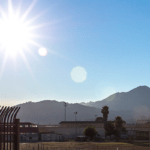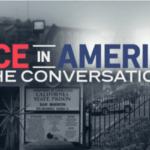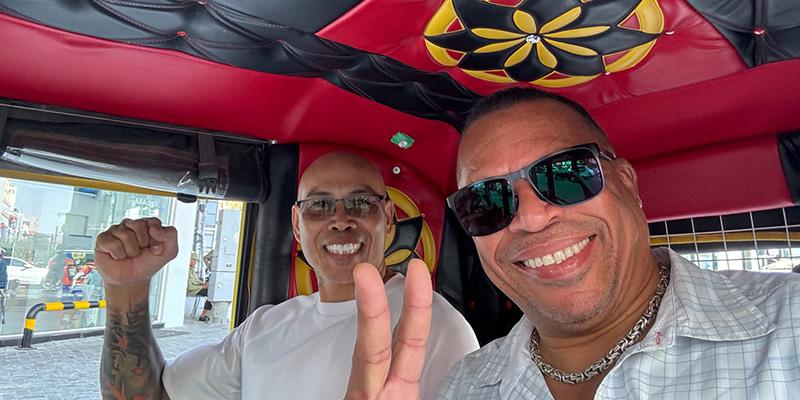In January 2022, after an arduous 18-month application and review process, Mount Tamalpais College was granted Initial Accreditation by the Accrediting Commission for Junior and Community Colleges, making it the first accredited independent liberal arts college dedicated specifically to serving incarcerated students.
Operating out of San Quentin State Prison — the oldest operating correctional facility in California, tucked away on a peninsula just outside of San Francisco — the staff at Mount Tamalpais has long been dedicated to ensuring that students on the inside receive a high-quality education at least comparable to what they might receive at a quality educational institution on the outside.
Along with providing “an intellectually rigorous, inclusive Associate of Arts degree program and College Preparatory Program, free of charge, to people at San Quentin State Prison,” Mount Tamalpais also seeks to “expand access to quality higher education for incarcerated people, and
to foster the values of equity, civic engagement, independence of thought, and freedom of expression,” according to its website.
NationSwell Council member Jody Lewen, the founder and president of Mount Tamalpais College, recently sat down with us to talk about advocating for academic quality and inclusivity and the process of building Mount Tamalpais’s programs into what they are today — a process, she said, that “really strained my atheism.”
Read our full interview with Jody below:
NationSwell: Tell us a little bit about how you ended up working in prison education.
Jody Lewen, founder and president of Mount Tamalpais College: I grew up in Manhattan and went to Wesleyan in Middletown, Connecticut, for undergrad, and then a short time later moved to Berlin and ended up doing my Master’s in comparative literature and philosophy. I came to California in 1994 to do my doctorate at Berkeley, but while I was about halfway through working on my dissertation, I very coincidentally learned about this college program at San Quentin that was run entirely by volunteers and became very interested.
I knew nothing about prison, it was not a field I had read about or studied. I had done a lot of political work and read a lot of history and literature as an undergrad and was very aware, in a mostly abstract sense, of suffering in the world, but I really hadn’t found a way to integrate my political interests with my academic career path. But I thought the program sounded really interesting, so I ended up going into San Quentin in the spring of 1999 and teaching a public speaking class and really loving it.
NS: What were some of the early challenges or surprises you faced in doing this work?
Mount Tamalpais College’s Jody Lewen: It was a lot of my own demons about education — there were so many very humbling ironies. I had never interacted with adults who were as talented and intelligent whose basic skills in reading and writing were as poor, and it made me realize that I had a lot of ignorant assumptions about the correlation between basic skills and intellect.
When I got that first batch of papers back, I didn’t even know how to grade them, because there were so many problems. So I eventually went back and had a conversation with the students where I said look, guys, I’m realizing there’s all this stuff you haven’t been taught about college writing and I’m not sure how to handle this but I don’t really feel comfortable letting this stuff slide.
They just overwhelmingly were like, ‘Please don’t patronize us, people have been underestimating us our entire lives.’ They didn’t want to be in a prison college program; they wanted to be in college, and they wanted to learn what they really needed to know to be successful in the outside academic and professional worlds.
NationSwell: How did you go from working as a volunteer at San Quentin to becoming the founder and president of Mount Tamalpais?
Lewen: I had gotten very interested in the recruitment and training of faculty because very early on I had become aware that they were not acquiring the basic skills they were going to need to be successful in a rigorous academic environment. It became a question of, should the standards we’re holding our students to on the inside be the same ones we’re holding our students to on the outside? And if not, why not?
I’m the most unreligious person to walk the face of the earth, and yet a series of things began happening that really strained my atheism. It was like an intervention: We started to realize that the problem was not just that they were so underprepared academically; the problem was us, it was that we didn’t have the resources or the time to build a program that really met their needs.
And then the fellow who was running the program left, and the whole thing collapsed on me like a house. I began to tear out walls and floors and ceilings; our courses weren’t in compliance with the minimum number of contact hours, so I extended the semester from 10 weeks to 13 weeks, increased the class meetings to twice a week from once a week, and began to recruit teachers who knew how to teach developmental writing and math. And we basically overhauled the whole pre-college writing and math program.
NationSwell: What are some of the things you think about in trying to recruit new educators to meet these challenges?
Lewen: To be frank, most people assume that prison is a scary place to be, understandably. We’ve all been taught to imagine incarcerated people as ugly, predatory, not very bright. So getting people to overcome their physical fear of prison is huge. It helps a lot, as the program has grown, we have so many current and former faculty members who can’t stop talking about what it’s like to teach there, and they’re really our recruitment army.
And then the other thing I’ve noticed is that the universe of people who are interested in prisons and serving the incarcerated are often relatively politically similar to each other. The Bay Area is obviously quite progressive, so cultivating intellectual diversity among the faculty can be quite challenging. I take really seriously the fact that our students are really diverse in every way —
not just racially or ethnically but also culturally, ideologically, politically, they’re from all corners of the universe. So diversity is also an important value in our recruitment processes.
NationSwell: What can interested members do to help support the work that you do, or prison education more broadly?
Lewen: For the fall semester our instructors are mostly lined up already, but in general we’re always looking for volunteers. For the credit classes the lead instructor has to have at least a master’s degree in the field, but for the developmental education classes and also any tutoring roles, the requirements are a little bit more flexible. [Anyone interested in volunteering can get in touch through Mount Tamailpais’s website here.]
We’re always looking to connect with individual and institutional funders who are excited about the idea of providing high quality educational opportunities to currently incarcerated people. Unlike traditional colleges, we charge no tuition and receive no state or federal funding. This is fantastic for preserving our autonomy and our capacity to innovate, but it’s also real work to raise $5 million a year. People can always reach out to us, or directly support our work at mttamcollege.org/donate.
There are also other nonprofit organizations that support reentry and other ancillary fields that can always use volunteers.A number of excellent organizations in the Bay Area have been founded by our alumni, either while they were still inside or once they got out. Some of those organizations are:
- Bonafide (bonafidelife.org), an amazing reentry organization that works with people from the moment they’re released and then stays with them throughout their lifetime helping them adjust and thrive.
- The San Quentin News, the prison newspaper that’s in a period of tremendous growth right now.
- Mend Collaborative, a restorative justice organization that was recently co-founded by an alumnus of ours.
- Veterans Healing Veterans, founded by a former student, which supports currently or formerly incarcerated veterans.
- Ear Hustle, a podcast that was co-founded by a former MTC faculty member.
Attribution: This article originally appeared in NationSwell, August 29, 2022.












